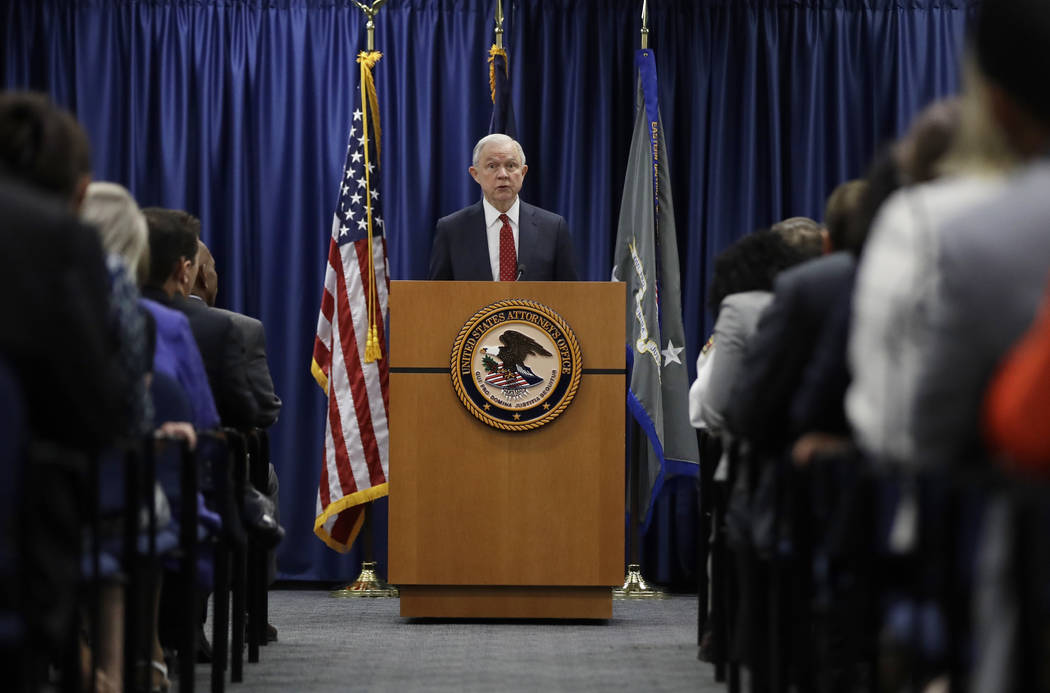Protect property by curtailing civil asset forfeiture
Police should be protecting private property, not profiting from how much of it they can get their hands on.
Unfortunately, civil asset forfeiture laws give law enforcement officials a financial incentive to take your money. Those laws allow police to seize property they believe has been involved in criminal activity. The idea makes sense in theory.
But police get a cut of the proceeds. That’s problematic, because they can — and do — increase their budgets by confiscating cash, cars and other property they suspect may be connected to crime. No conviction required in most cases around the country.
That sounds more like Iran than the United States. Unfortunately, for decades, seized property has been treated as guilty until proven innocent. To get it back, citizens have to navigate a maze of legal hurdles, pay their own legal bills, and prove their innocence. Most can’t.
Last week, Attorney General Jeff Sessions made the situation worse by announcing the rollback of minor forfeiture reforms introduced by previous Attorney General Eric Holder. Holder limited federal “adoptions” of assets seized by local police, which accounted for 18 percent of federal forfeiture proceeds.
Law enforcement prefers to seize under federal “equitable sharing” provisions, instead of state law, because up to 80 percent of the money goes into local police coffers. Most federal seizures come from joint task forces and investigations, which Holder’s change largely bypassed.
The profit motive changes human behavior. The Institute for Justice uncovered an Arizona Prosecuting Attorneys Advisory Council training presentation that warned officers not to “start seizing everything in sight.” Such obvious abuse could “ruin forfeitures for all of us.”
We’ve seen that in Nevada. Last month, the 9th U.S. Circuit Court of Appeals ordered Nevada law enforcement to return $167,000 that officers took from Staughn Gorman during a 2013 traffic stop. Gorman wasn’t charged with a crime, but officers confiscated his cash under suspicion that he was tied up with drugs.
“It’s just so un-American, it’s hard to believe,” said state Sen. Tick Segerblom, D-Las Vegas. “The way it’s been used and abused by police and prosecutors is outrageous. There’s no due process.”
The good news is that Nevada did pass some minor reforms in 2015 through a bill sponsored by Sen. Don Gustavson, R-Sparks. Forfeiture now requires a criminal conviction or mutual agreement, and agencies must tell the attorney general how much they collected under Nevada’s forfeiture laws.
It’s not enough. If your friend uses your car to haul drugs, the burden of proof remains on you to get your property back. Nevada police still profit from seizures, especially if done under looser federal standards. Unfortunately, law enforcement and district attorney opposition killed a 2017 bill sponsored by Gustavson, Segerblom and others to create further protections.
Nevada lawmakers should pass a law that proceeds from forfeiture must go the state or local government’s general fund. That would effectively end Nevada’s participation in equitable sharing, which requires funds be used for law enforcement purposes, and protect Nevadans during state seizures.
We pay police to stop crime, not to participate in legalized plunder.
Victor Joecks’ column appears in the Nevada section each Sunday, Wednesday and Friday. Contact him at vjoecks@reviewjournal.com or 702-383-4698. Follow @victorjoecks on Twitter.
























